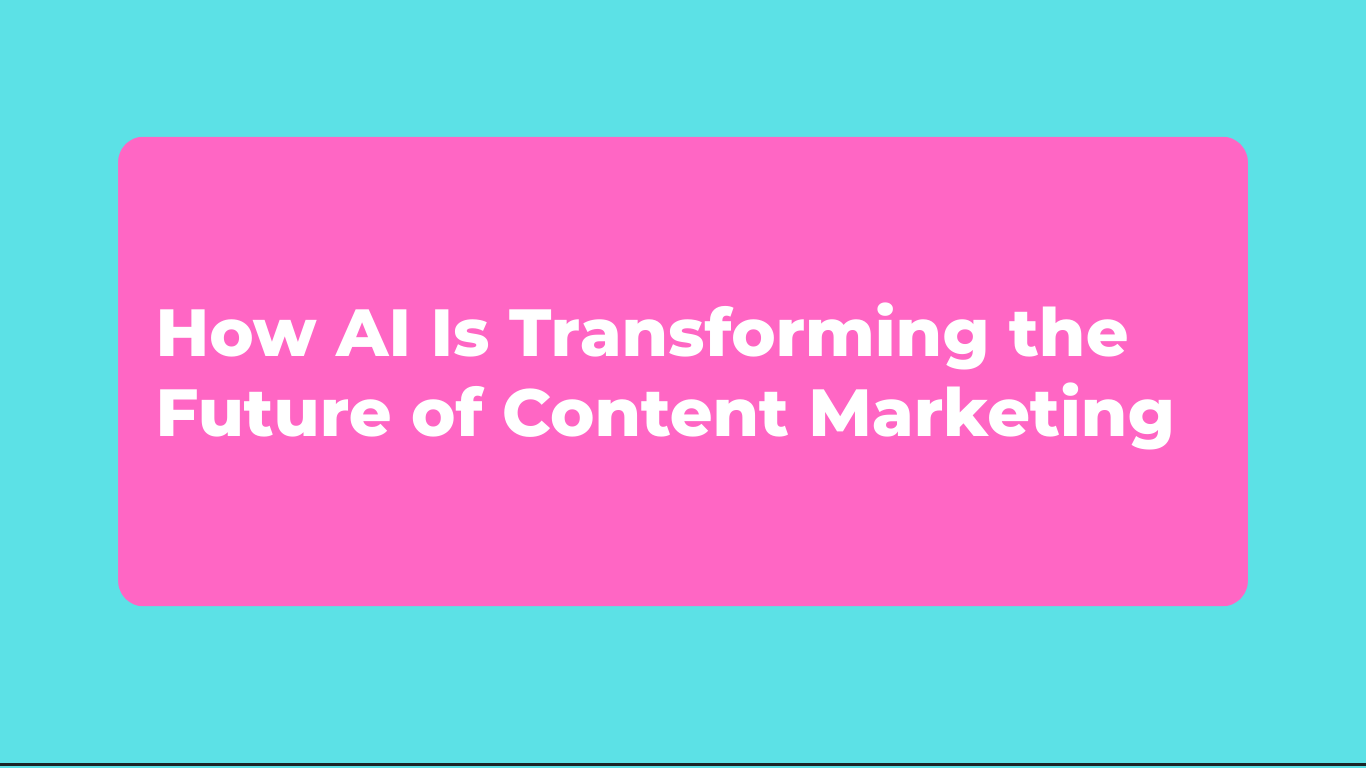
Content Marketing in the AI Era: The Future Explained
Introduction to AI in Content Marketing:
Artificial Intelligence (AI) has emerged as a pivotal force in the transformation of many industries, with content marketing being no exception. Historically, content marketing has evolved from basic forms of advertising to complex digital strategies designed to engage consumers in meaningful ways. The rise of the internet and social media has significantly influenced how businesses create and distribute content, thereby setting the stage for the integration of AI technologies.
Table Of Content
- The Role of Data Analytics in AI-Driven Content Marketing
- Personalization and Targeting with AI
- Content Creation: AI Tools and Technologies
- Enhancing SEO with AI
- AI-Driven Content Distribution Strategies
- Real-World Examples of AI in Content Marketing
- Challenges and Ethical Considerations
- The Future of AI in Content Marketing
AI encompasses a variety of technologies, including machine learning, natural language processing, and data analytics, that enable marketers to analyze vast amounts of data efficiently. These tools allow for the personalization of content, making it more relevant and engaging for specific audiences. For instance, algorithms can predict user preferences, allowing marketers to craft tailored content experiences that resonate with their target demographic. This shift towards personalization highlights why AI is becoming increasingly essential for modern marketing strategies.
The relevance of AI in content marketing is further underscored by its ability to automate repetitive tasks, such as content curation or social media posting. By streamlining these processes, businesses can allocate their resources more efficiently, enabling creative teams to focus on high-level strategy and innovative content creation. Moreover, AI systems can analyze campaign performance in real-time, offering insights that lead to more informed decisions and refined marketing tactics. As a result, companies leveraging AI are not only enhancing their operational efficiency but are also able to respond quickly to market trends.
In summary, the integration of AI in content marketing signifies a transformative shift that promises to optimize the way businesses connect with their audiences. As technological advancements continue to unfold, the role of AI will undoubtedly expand, making it an indispensable component of any effective content marketing strategy.
The Role of Data Analytics in AI-Driven Content Marketing:
In the contemporary landscape of content marketing, the integration of artificial intelligence (AI) has markedly transformed how data is utilized. At the heart of AI-driven content marketing lies the power of data analytics, which allows marketers to refine their strategies based on insights derived from vast amounts of information. Not only does AI enable the processing of complex data sets, but it also facilitates smarter decision-making through enhanced audience segmentation, behavior prediction, and content performance analysis.
Audience segmentation is one of the most critical aspects of leveraging data analytics in content marketing. AI tools can analyze consumer data to identify distinct audience segments, ensuring that content is tailored to the specific preferences and behaviors of different groups. This level of personalization increases engagement rates and fosters a deeper connection between brands and their target audience. By honing in on the characteristics of these segments, marketers can deliver more relevant content that resonates effectively with consumers.
Furthermore, predictive analytics powered by AI allows marketers to anticipate consumer behavior. By examining historical data patterns, AI helps forecast future actions and preferences of the audience. This predictive capability enables marketers to create content that not only encourages engagement but also drives conversions by addressing the potential needs of consumers before they even arise.
In addition to segmentation and prediction, the analysis of content performance plays an essential role in shaping content strategy. AI systems can continuously monitor data metrics such as reach, engagement, and conversion rates. By analyzing this data in real-time, marketers can derive actionable insights that inform content improvements, ensuring that strategies evolve in response to audience needs and preferences.
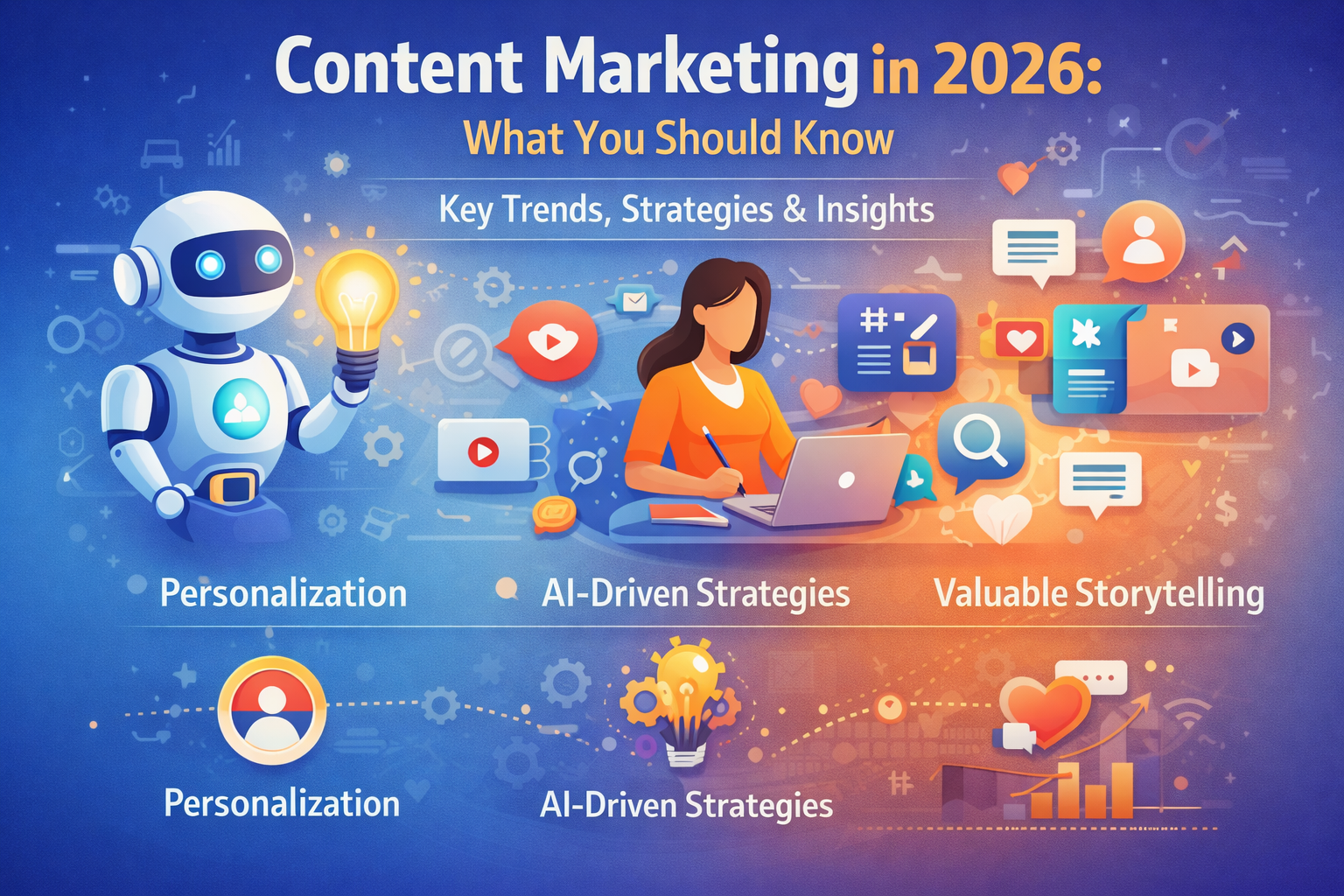
Personalization and Targeting with AI:
The integration of Artificial Intelligence (AI) in content marketing has revolutionized how brands connect with their audiences. One of the most significant advancements has been in personalization, where AI algorithms analyze user data to create tailored content that resonates with individual preferences and behaviors. This level of personalization not only enhances user experience but also significantly increases engagement rates.
Through sophisticated data analysis, AI can identify patterns in user behavior, demographics, and even psychographics. This enables marketers to segment their audience more effectively, ensuring that the content delivered is relevant and appealing. For instance, e-commerce platforms like Amazon leverage AI-driven recommendations based on users’ previous purchasing behaviors and browsing history. Such customized content encourages customers to explore products they may not have considered, fostering a more personalized shopping experience.
A notable example of successful AI-driven personalization is Spotify’s “Discover Weekly” playlists. By utilizing algorithms that track users’ listening habits and preferences, Spotify curates tailor-made playlists that introduce listeners to new music they are likely to enjoy. This not only elevates user satisfaction but also nurtures brand loyalty, as users feel understood and valued by the platform.
Moreover, AI can optimize email marketing campaigns by analyzing recipient behavior, allowing marketers to send personalized messages at optimal times. For example, companies like Netflix utilize sophisticated AI algorithms to tailor their email content, ensuring that subscribers receive recommendations aligned with their viewing history. This strategic use of personalization through AI significantly enhances user engagement and retention rates.
In summary, the ability of AI to personalize content is transforming content marketing strategies. By understanding user preferences and delivering personalized experiences, brands not only enhance user engagement but also create meaningful connections with their audiences, ultimately leading to stronger brand loyalty and improved conversion rates.
Content Creation: AI Tools and Technologies:
The landscape of content creation is undergoing a significant transformation, primarily driven by advances in artificial intelligence (AI) technologies. Marketers are increasingly leveraging AI tools that utilize natural language processing (NLP) algorithms to optimize their content generation processes. These innovations enable marketers to produce high-quality content that resonates with target audiences while maintaining efficiency.
One primary type of AI tool that is shaping content creation is content generation software. These platforms employ sophisticated algorithms that analyze existing content and then generate new material based on input parameters. Such software can produce blog posts, social media updates, and even video scripts with minimal human intervention. This not only accelerates the content production cycle but also allows marketers to focus more on strategy and less on the administrative aspects of content creation.
Furthermore, creative AI applications are becoming invaluable in the content marketing landscape. Tools that incorporate machine learning can assess audience preferences and tailor content accordingly. For instance, algorithms can analyze user engagement metrics to determine which styles or formats yield the best responses. By identifying trends in real-time, these tools empower marketers to adapt their content strategies swiftly and effectively.
Moreover, AI-driven content creation tools can also assist in optimizing content for search engines. They can automatically suggest keywords, analyze competitor content, and recommend structural changes to improve readability and user engagement. This ensures that the produced content is not only creative but also strategically positioned to reach and captivate intended audiences.
In summary, the integration of AI tools and technologies in content creation is revolutionizing how marketers produce and manage content. By harnessing the capabilities of NLP and creative AI applications, businesses can significantly enhance their content strategies, leading to improved efficiency and effectiveness in reaching their target markets.
Enhancing SEO with AI:
In recent years, artificial intelligence (AI) has emerged as a powerful tool in the realm of search engine optimization (SEO). Its integration into various aspects of SEO strategies has transformed how digital marketers approach keyword research, content optimization, and user engagement. As search engines evolve, AI plays an increasingly critical role in developing algorithms that can understand user intent and content relevance, thus reshaping the landscape of search visibility.
One of the most significant contributions of AI to SEO lies in its ability to streamline keyword research. Traditional methods relied heavily on manual analysis of search volume and competition; however, AI tools now analyze vast amounts of data rapidly. These innovations allow marketers to identify high-potential keywords, discover long-tail variations, and assess trends more effectively. By leveraging AI-driven insights, businesses can craft targeted content that aligns better with consumer search behaviors.
Content optimization, another cornerstone of effective SEO practices, has also seen considerable advancements thanks to AI. Natural language processing algorithms can examine existing content to ensure it meets quality and relevance standards while suggesting enhancements for readability and engagement. AI technologies can even optimize metadata, headers, and other on-page elements by analyzing what resonates best with target audiences. As a result, content creators can produce highly relevant materials that engage visitors, while simultaneously adhering to SEO best practices.
Moreover, as AI continues to evolve, search engine algorithms adapt to incorporate more sophisticated machine learning techniques, which enhances their ability to provide accurate and meaningful search results. Understanding this dynamic interplay between AI and SEO is crucial for marketers aiming to stay ahead in an increasingly competitive digital landscape. It underscores the importance of adopting AI-driven tools not only to optimize content but also to refine overall SEO strategies for better performance and visibility in search results.
AI-Driven Content Distribution Strategies:
In recent years, artificial intelligence (AI) has revolutionized content marketing by optimizing distribution strategies across multiple platforms. This significant transformation primarily lies in AI’s ability to analyze vast amounts of data, allowing marketers to create targeted approaches that enhance content reach and effectiveness. One of the most notable advancements is automated content scheduling, which utilizes AI algorithms to determine the optimal posting times for different audiences. By analyzing user engagement patterns and online behaviors, AI can effectively schedule content to maximize visibility and interaction.
In addition to automated scheduling, AI has greatly impacted targeted advertising. With its capacity to analyze audience demographics, interests, and online behaviors, AI enables marketers to craft personalized advertisements that resonate with specific segments. This strategic targeting not only increases click-through rates but also fosters higher conversion rates, providing a more efficient use of marketing budgets. AI-driven platforms allow for real-time data analysis, enabling marketers to adjust their campaigns swiftly based on performance metrics and audience feedback, ensuring a responsive and agile advertising approach.
Furthermore, leveraging AI in social media strategies has proven to be invaluable. AI tools can analyze social media trends and audience sentiments, identifying which types of content elicit the most engagement. This analysis allows brands to refine their messaging and tailor their content for maximum impact. Additionally, AI can assist in identifying influencers who align with a brand’s values, facilitating partnerships that can significantly amplify a brand’s reach. By harnessing AI-driven insights, marketers can create effective distribution strategies that not only enhance the reach of their content but also elevate overall marketing effectiveness.
Real-World Examples of AI in Content Marketing:
As businesses increasingly turn to artificial intelligence for enhancing their content marketing strategies, many have reported significant positive outcomes. One noteworthy example is the global tech giant, IBM. The company utilized AI in its content marketing efforts by employing IBM Watson to analyze audience data. This enabled them to create personalized content that resonated with their target audience. By analyzing preferences and behaviors, IBM tailored its messaging to meet the specific needs of different customer segments, resulting in improved engagement rates and a measurable increase in conversion.
Another compelling case is that of the fashion retailer, ASOS. The brand integrated AI-driven chatbots into its marketing strategy to assist customers with product recommendations and inquiries. The chatbots analyze user interactions and frequently asked questions to provide tailored responses, enhancing customer service. Feedback from customers highlighted increased satisfaction due to faster and more relevant interactions. This integration not only improved customer experience but also freed up human resources to focus on more complex queries, enhancing the overall efficiency of the marketing strategy.
Moreover, the media company, The Washington Post, has employed AI for content creation. Through its in-house AI engine, Heliograf, the publication produces articles on various topics, including sports and local news. Heliograf can automatically generate content based on data inputs, ensuring timely reporting without sacrificing quality. This innovative application not only increases output but also allows human journalists to concentrate on more in-depth investigative reporting. The lessons learned indicate that while AI can handle routine content generation, human oversight remains crucial for maintaining journalistic integrity and depth.
These examples reinforce the notion that integrating artificial intelligence into content marketing is not merely a trend, but a significant evolution in how brands engage with their audiences.
Challenges and Ethical Considerations:
As the landscape of content marketing continues to evolve with the integration of artificial intelligence (AI), various challenges and ethical considerations have emerged that require careful attention. One of the most pressing issues relates to data privacy. The utilization of AI often involves the collection and analysis of vast amounts of consumer data to optimize content delivery and engagement. However, marketers must navigate the delicate balance between leveraging data for marketing efficacy and ensuring that consumer privacy rights are upheld. Failure to do so could lead to violations of privacy regulations and a loss of consumer trust.
In addition to data privacy, the authenticity of AI-generated content presents another significant challenge. Although AI can produce content quickly and at scale, questions arise regarding the originality and credibility of such material. Marketers may struggle to maintain transparency about AI’s role in content creation, potentially leading to misleading claims or representations. This raises ethical dilemmas about the integrity of content itself, particularly when consumers are increasingly valuing authentic and relatable communication from brands.
The impact of AI on employment within the content marketing sector cannot be overlooked. As AI tools become more capable of generating content, concerns emerge regarding job displacement among creative professionals. While AI may enhance productivity and streamline processes, marketers must consider how to incorporate AI as a tool that assists rather than replaces human talent. This approach encourages a collaborative relationship between AI and content creators, ultimately enhancing the quality of marketing efforts while preserving job opportunities.
In light of these challenges, it is crucial for marketers to adopt a responsible and ethical approach when implementing AI in their strategies.
The Future of AI in Content Marketing:
The rapid evolution of artificial intelligence (AI) is poised to significantly transform the landscape of content marketing. As brands increasingly integrate AI technologies into their strategies, we can anticipate a surge in innovative applications that will enhance engagement and personalization. One prominent trend we are likely to witness is the growing sophistication of AI-driven content creation tools. These tools, powered by machine learning algorithms, can generate high-quality written content, design visuals, and even develop video narratives tailored to target audiences. This capability will not only save time and resources but also enable marketers to refresh content swiftly in response to changing consumer interests.
Another critical aspect shaping the future of AI in content marketing is the evolution of consumer expectations. As consumers become more accustomed to personalized experiences facilitated by AI, they will demand even greater relevance and immediacy from brands. Marketers must harness AI to analyze data and predict consumer behavior, allowing them to deliver customized content that resonates. By leveraging analytics and insights derived from AI applications, brands can anticipate trends and create content that not only aligns with consumer preferences but also preempts their needs, fostering strong brand loyalty.
Moreover, as the content marketing landscape continues to evolve, brands must adopt a proactive approach to stay ahead. Embracing advancements in AI will enable marketers to refine their strategies and techniques, ensuring they are equipped to deal with an increasingly competitive environment. Collaboration among marketing, data analysis, and technology teams will be critical in implementing AI effectively. Continuous experimentation with AI tools and methodologies will allow brands to discover new avenues for engagement, retention and growth.

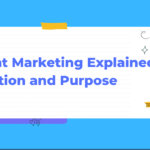
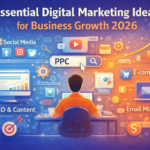
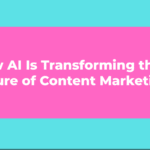
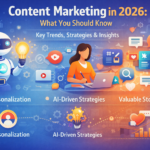
This guide really helped me simplify my ad campaigns.”